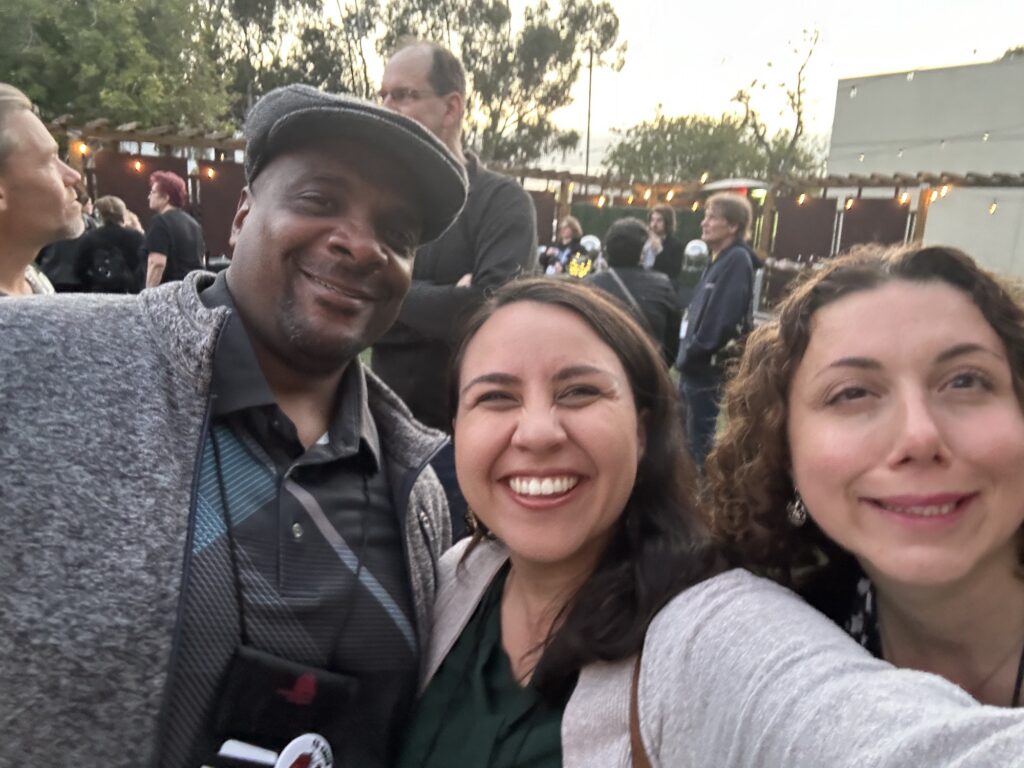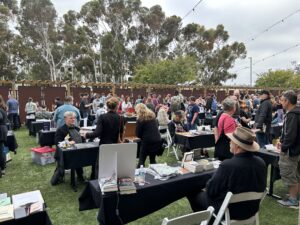In Two Words: Project Management
The secret to planning a successful convention is project management. Without the sufficient planning, organization, teamwork, and time to prepare accordingly, your convention or event or project may happen, it just may not happen smoothly.
After being a co-chair for the 2024 Horror Writers Association StokerCon San Diego here are some of the biggest lessons I have learned.

Planning: Start With the Big Picture
To know how to get anywhere, you have to know where you’re going. When it comes to planning a convention or major event, start with what you envision it to be or what it has been historically from there, start asking the questions:
- Do you have the budget to meet that expectation
- What are the expectations from previous attendees
- What are the expectations of the board or your fellow planners
- How do you intend to improve from the previous year or from previous events you have attended
- What is the mission of the organization you are a part of
- How do you want your guests to grow as a result of attending
For us with StokerCon, my colleagues, Dennis K. Crosby, K.C. Grifant, and I were the local chapter leaders working with the national branch of the Horror Writers Association. We were the proverbial boots on the ground bringing to life the vision of the board and previous members. Working with the national branch, we were able to see and understand that our convention had many different elements, including: an academic track, film festival, banquet and awards ceremony, panels, networking, and so much more.
We were fortunate enough to be working off of a manual and the expertise of many others. I highly recommend if it is your first time organizing a convention, to reach out to people within your network to gather the above information and to reach out to people who may have experience running large-scale events, which we will talk more about in the Teamwork section.
To know how to get anywhere, you have to know where you're going.
S. Faxon Tweet X
Organizing
If your budget is limited, you don’t need fancy programs to manage programs. With StokerCon, we had over 700 registrations, over 100 panels, four to 6 panelists per panel, venue discussions, catering, and beyond happening, but we the programs we used to keep everything together was Sched (which was paid for) and good ol’ Google.
While there are amazing programs for project management like Trello, Monday, and Notion (I am not affiliated with any of these, but I am open to the conversation), Google suite hosts a variety of resources that were boons to organizing our projects.
From creating meeting agendas in Google Docs (agenda items and meeting moderators are another great way to keep things tidy), to sheets where we scheduled out panels and volunteer opportunities, keeping in contact with your team and providing regular updates on who is working on what helps to keep the balls up in the air and rolling at the same time.

Sched helped us manage the programming and attendees who registered for the event via Eventbrite. Sched is an incredibly useful tool, though I do wish their reporting was a bit more customizable. Overall though, it is a wonderful resource for managing a large-scale event like this with multiple panels and attendees. It is also a great way to highlight your attendees, panelists, special guests, and moderators, as their bios can also be displayed.
Another helpful tool to keep organized are lists. Lovely lists. I am a big list person and I created a list here to help keep the projects I managed organized during the planning phase of this convention, which you may download for free by clicking here.
Teamwork
Understanding your strengths and surrounding yourself with people who have knowledge you don’t is a fine way to start a team.
Our local chapter divided duties we felt confident in achieving and then we delegated the rest to volunteers who were willing to help and who had knowledge in the fields they were assisting.
Our national and local team had an established hierarchy, which I would also recommend having in place with your planning so that people who may not be as experienced or may not be able to answer questions, will know who to go to in case (and they will) these situations arise. In the early planning phases, I would recommend ensuring that you know who is responsible for what and to what extent. If you are creating a play book or a manual for your team to follow in the future, having titles and responsibilities, a CRM of your team, will help to keep people from “swimming in each other’s lanes” and it will help ensure your team knows what each other is responsible for and the boundaries of their capacity.
Be open, respectful, and honest with your team. Especially if you are working with volunteers, remember to express your gratitude for their dedication and the expertise they are providing to your convention as they are donating their know-how and time, which are tremendous investments.
Time
Enough can’t be said about how much time it takes to plan a convention of this size. We were recruited around October of 2022 and this convention happened in the last week of May of 2024. And, to be completely honest, we could have probably started a few months earlier. I HIGHLY recommend giving yourself a year at minimum to plan a convention of this size (again, over 700 registrations) so that you may have all of your details and ducks in a row. Here comes another list recommendation: create a timeline starting with your intended date and then working backwards month by month to detail all of the tasks that need to be done by a certain point. Work with your venue to see what they need by when. Determine when you need to have your panelists decided, do you have a cut-off date for registration? When do all of your materials need to be ordered by? Entertainment? Catering? Allergies? There are so many details to consider and that’s why a good planning meeting around a year to 18 months ahead of your intended go-date is so integral to everything running smoothly so that your time, your team’s time, and the time of your attendees is not wasted.
Final Thoughts
Strategically planning, organization, developing your team, and efficiently spending your time go well beyond planning a con. They can be applied to any project management situation. Whether you’re assembling a team for a political campaign, planning a book launch, or rolling out an event at your school, having the tools of organization, planning, teamwork, and time are the best to have in your belt. Prepare your team and yourself with the knowledge you need to succeed and your event will be a dream.
In the weeks that have followed our convention, my colleagues and I have received countless compliments on the success of the convention. While there were areas for growth, we could not have imagined how amazing it was to see what we had been working on for so long as a living, breathing entity.
I am very grateful to the National Horror Writers Association for choosing my hometown for the 2024 StokerCon location. I am eternally thankful to our volunteers who helped bring this event to life. It is strange to think it a memory now and not the event we were looking forward to, but such is life. I hope that any project you are involved with runs smoothly too and if you found this post helpful, I would love to know!
Thank you and cheers!
-Sarah

